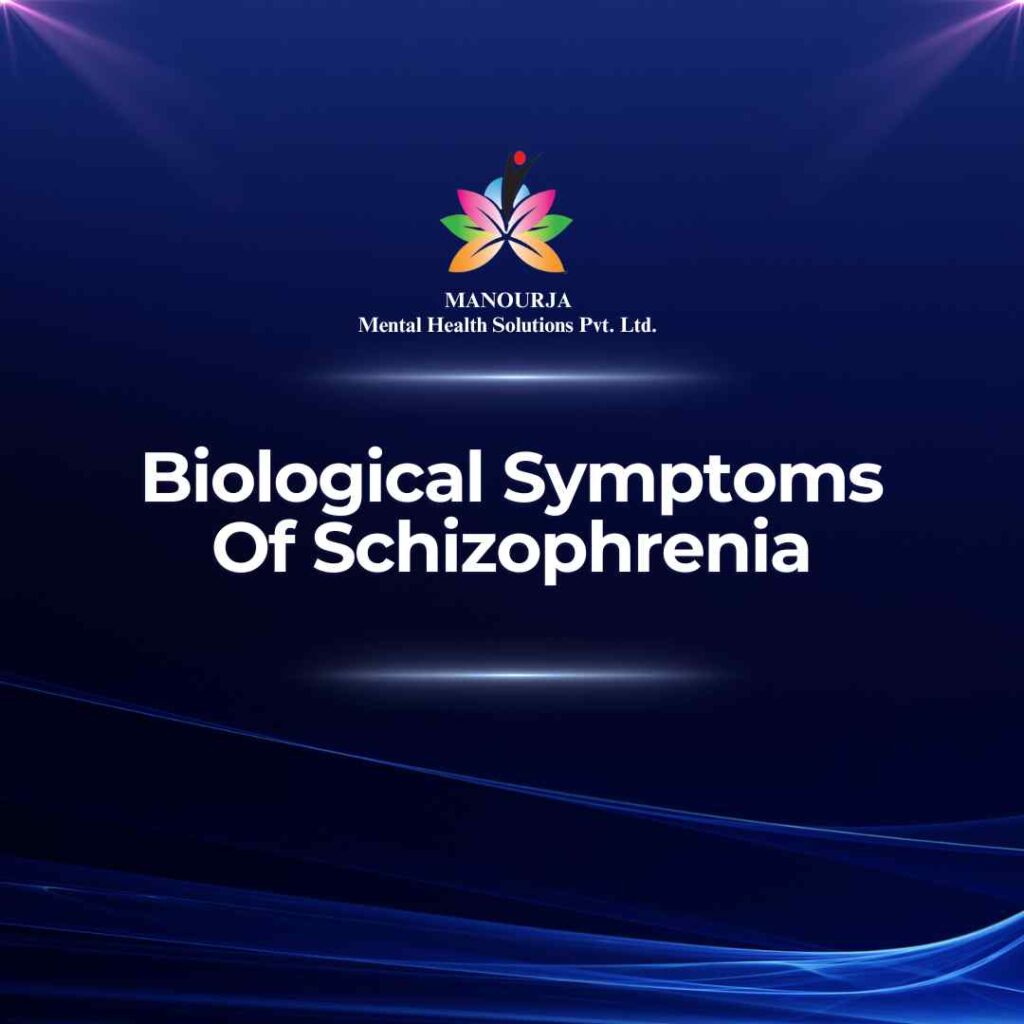Biological Symptoms of Schizophrenia

Schizophrenia is primarily characterized by its psychological symptoms, such as delusions and hallucinations, but it also involves several biological symptoms and underlying biological disturbances. These biological aspects are often studied to better understand the disorder and to develop more effective treatments.
Here’s an overview of the key biological symptoms and changes observed in individuals with schizophrenia:
Brain Structure Changes
- Enlargement of the Ventricles: Imaging studies often show enlarged ventricles in the brains of people with schizophrenia, indicating a loss of brain tissue.
- Reductions in Brain Size: There is often a reduction in the total brain volume, particularly in the gray matter, which consists of the neuron cell bodies and is crucial for processing information.
- Abnormalities in Specific Brain Regions: Changes are often seen in the prefrontal cortex (which affects decision making and problem-solving), the temporal lobes (involved in hearing and memory), and the hippocampus (important for memory).
Neurotransmitter Imbalances
- Dopamine Dysregulation: Schizophrenia has long been associated with abnormalities in dopamine levels and dopamine receptor activity. Excess dopamine activity in certain brain pathways is linked to psychotic symptoms.
- Glutamate Dysfunction: Reduced function of glutamate, another neurotransmitter, is also implicated in schizophrenia. Glutamate is critical for learning and memory and supports the communication between neurons in the brain.
- Serotonin, GABA, and Others: Other neurotransmitters like serotonin and GABA (gamma-aminobutyric acid) have also been found to be involved, though their exact roles are less well understood compared to dopamine and glutamate.
Neurodevelopmental Anomalies
- Prenatal Exposure to Infection: Some evidence suggests that exposure to infections during prenatal development may increase the risk of developing schizophrenia, possibly due to immune system involvement or direct effects on developing brain structures.
- Abnormal Brain Development: Schizophrenia may involve disruptions in the normal development of the nervous system, which could occur during critical periods in prenatal development, infancy, or adolescence.
Genetic Factors
- While no single gene causes schizophrenia, several genes have been identified that increase the risk of developing the disorder. These genes likely interact with environmental factors to affect brain development.
Physiological Symptoms
- Altered Stress Response: Individuals with schizophrenia often show abnormalities in the hypothalamic-pituitary-adrenal (HPA) axis, which regulates the body’s response to stress.
- Inflammatory Markers: Higher levels of certain markers of inflammation have been found in some people with schizophrenia, suggesting that inflammation could play a role in the disorder.
Cognitive Impairments
- Although not a direct physical symptom, schizophrenia is often associated with significant cognitive deficits, such as problems with attention, memory, and executive functions. These cognitive impairments have a biological basis and are linked to both structural and functional brain abnormalities.
Understanding these biological symptoms and their relationships with the clinical manifestations of schizophrenia helps in the development of targeted treatments and interventions, including pharmacological and non-pharmacological approaches designed to address these underlying biological disturbances.
At MANOURJA, we believe in the transformative power of counseling. Our experienced therapists offer a safe and supportive space where you can explore your thoughts, emotions, and challenges. Through personalized counselling sessions, we’ll work together to develop coping strategies, build resilience, and achieve lasting positive change. Discover the path to a healthier, happier you with MANOURJA counselling services.
MANOURJA Rehabilitation Services
At MANOURJA, we’re dedicated to helping you in rebuild your life, after difficult times. Our rehabilitation services focus on understanding what you need to move forward, whether you’re recovering from addiction, trauma, or any psychological – social challenges. We create personalized plans, that are all about helping you, regain your strength and find hope again. With a caring team by your side, you’ll have the support to make real progress and take steps toward a brighter, healthier future.
